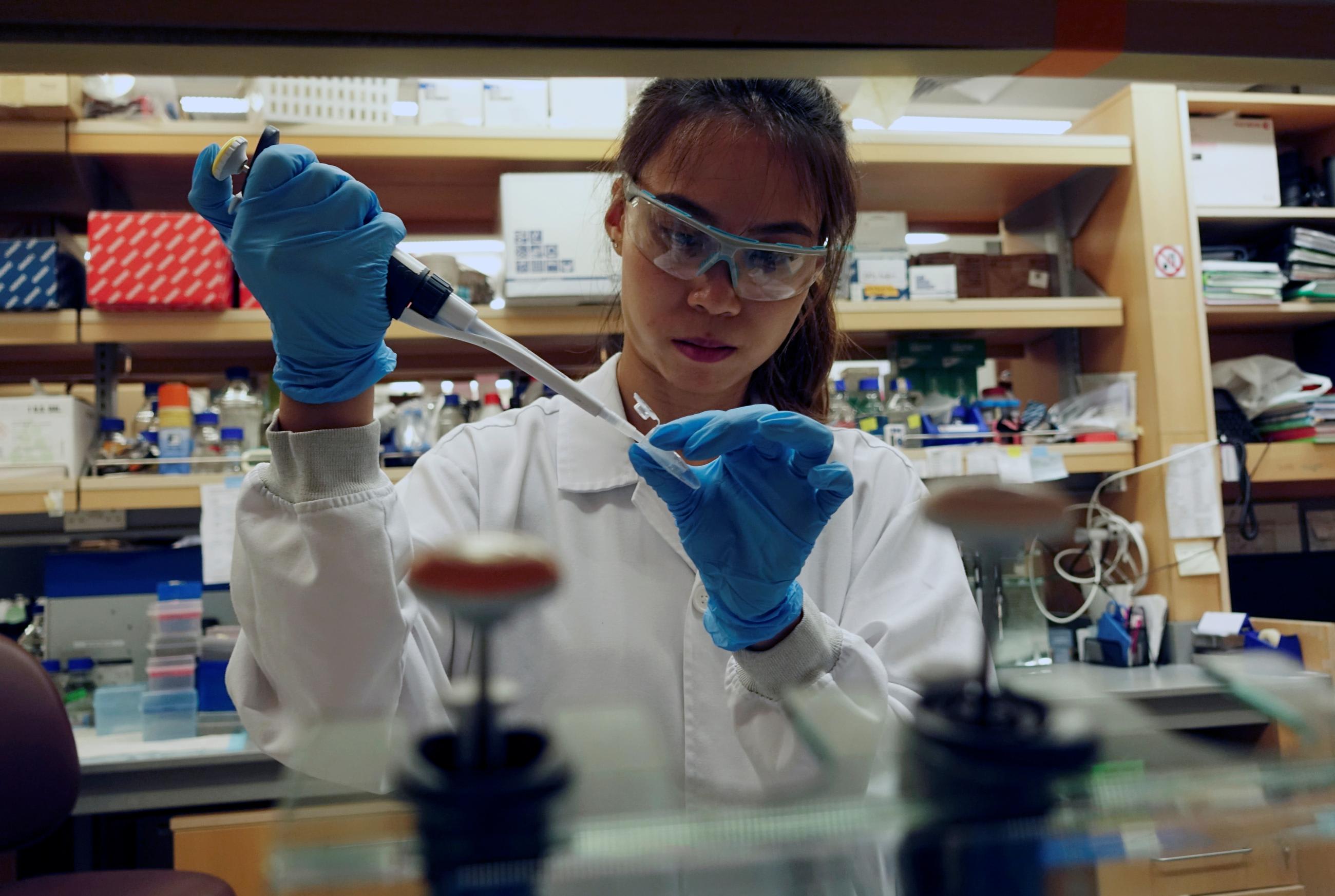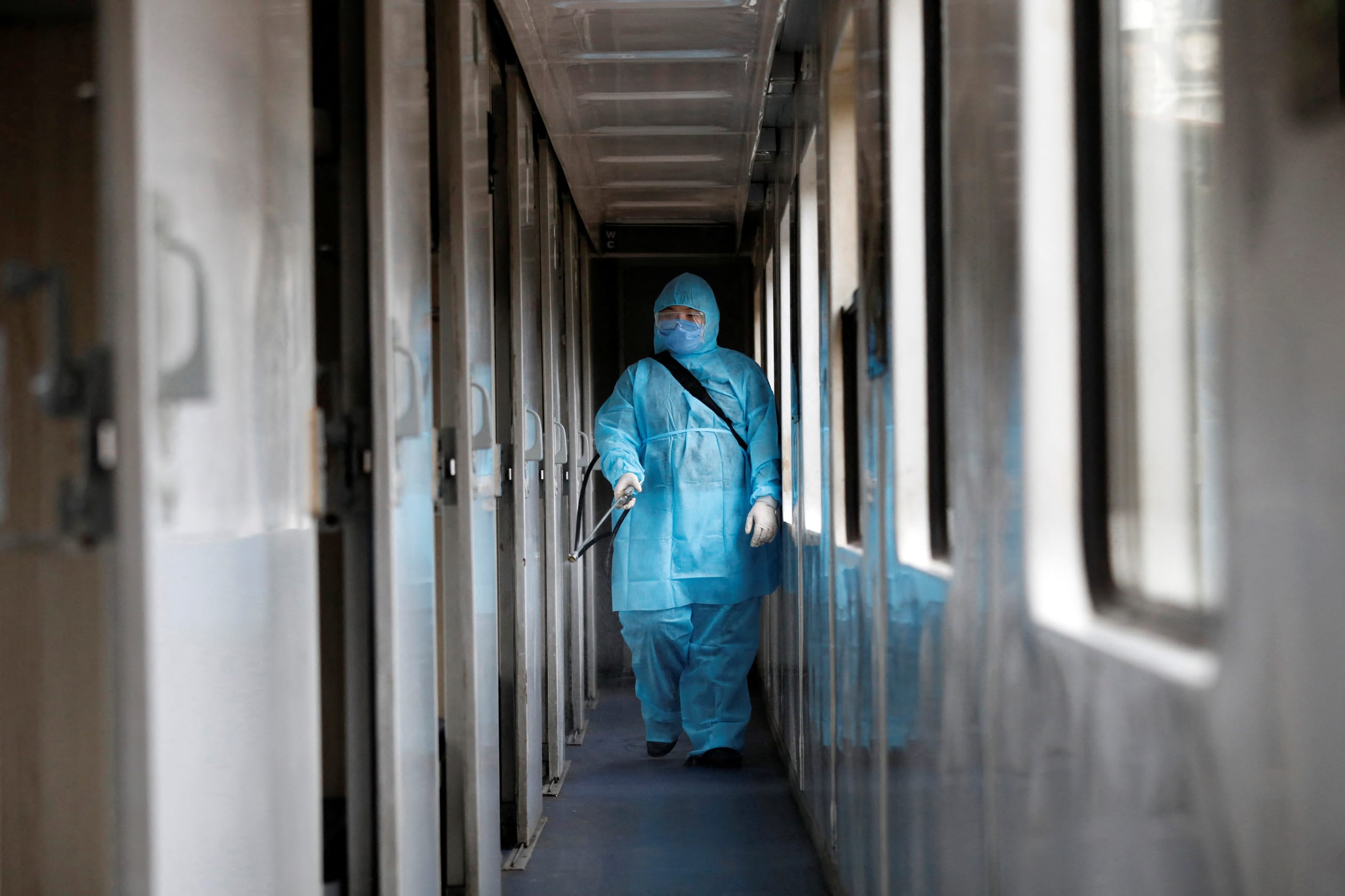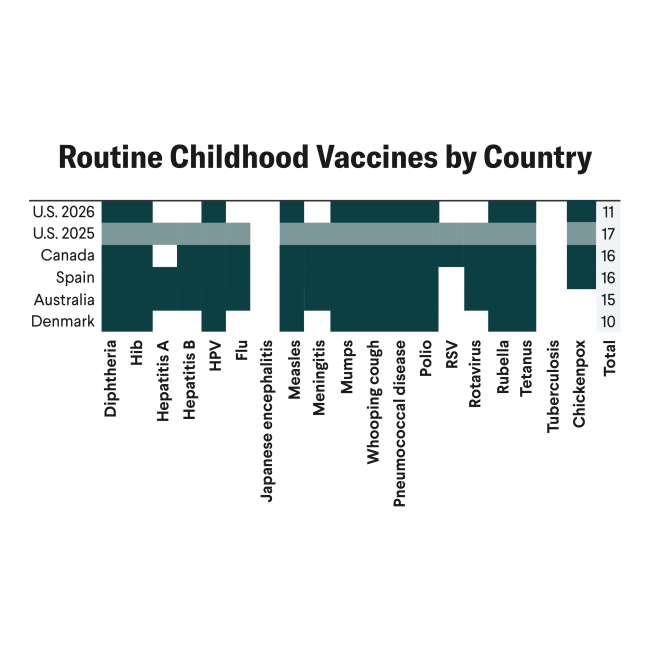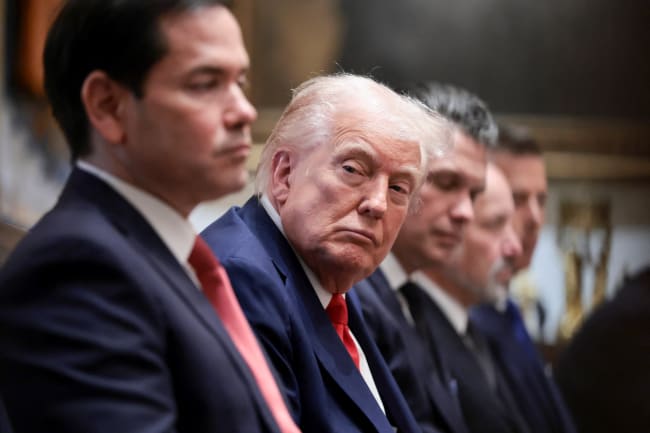In January 2025, President Trump's decision to exit the World Health Organization (WHO) and suspend foreign aid marked a pivotal moment in global health governance. Shifting geopolitical realignments are also redefining global governance priorities, such as the U.S. temporary suspension of military aid to Ukraine, which is accelerating European rearmament efforts and crowding out health investment abroad.
Although institutions such as the WHO remain the lead for responses, recent disruptions have exposed the need for a more decentralized, resilient system in which regional organizations assume greater responsibility. Regional bodies are uniquely positioned to operationalize rapid responses, foster trust with and among neighboring states, and align interventions with local priorities—capabilities that are often difficult to mobilize at the global level.
Amid a 70% decline in Official Development Assistance from 2021 to 2025, regional institutions such as the Africa Centers for Disease Control and Prevention (Africa CDC) have taken on a more prominent leadership role in rethinking the challenge, reflected in its recently released report "Africa's Health Financing in a New Era." In February 2025, it had convened a series of high-level meetings to raise political awareness and mobilize domestic and private-sector support for health financing across the continent. A key outcome was the Africa Epidemic Fund, designed to strengthen domestic resource mobilization for health emergencies. Jean Kaseya, director general of Africa CDC, stressed that "Africa is ready to lead from the front, with bold investments and African-led solutions."
These developments reflect a broader shift in global health governance. They align with the vision articulated by John Nkengasong, the inaugural director of the Africa CDC during the third wave of COVID-19 in 2021, who emphasized the critical importance of regional solutions for effective pandemic management.
As the world envisions a new global architecture for managing health emergencies, fully integrating the leadership, expertise, and resources of regional institutions such as the Africa CDC will be essential not just to filling existing gaps, but also to building a more resilient, equitable, and effective global health system.
The Inherent Value of Regional Cooperation to Manage Shared Crises
Since the COVID-19 pandemic, the movement toward regional spaces for health cooperation has grown. In 2021, the Gulf Cooperation Council established the Gulf Centers for Disease Control and Prevention to enhance regional health cooperation. The same year, the European Union (EU) created the Health Emergency Preparedness and Response Authority to strengthen regional preparedness and response with a focus on ensuring access to medical countermeasures such as vaccines, diagnostics, and therapeutics. In 2022, the African Union decided to elevate the Africa CDC to an autonomous public health agency, with an expanded mandate to declare public health emergencies of continental security.
Neighboring states share more than their borders: They are united by shared histories, economies, cultures, languages, and identities
In 2023, the Association of Southeast Asian Nations (ASEAN) announced the Center for Public Health Emergencies and Emerging Diseases [PDF] to consolidate and coordinate regional capabilities across the health emergency management cycle. In Latin America, calls from regional experts to establish a Latin American CDC highlight the growing recognition that self-reliant regional frameworks are essential for health security.
Neighboring states share more than their borders: They are united by shared histories, economies, cultures, languages, and identities. These common attributes give rise to similar sets of risk factors for emerging and reemerging infectious diseases. In West Africa, porous borders between countries such as Guinea, Liberia, and Sierra Leone contributed to the rapid spread of Ebola during the 2014–16 outbreak. Traditional burial practices common across these neighboring communities—such as close physical contact with the deceased—further exacerbated transmission, illustrating how culturally linked practices across regions can amplify health risks.
Many regional organizations first emerged from the understanding that shared risks also create opportunities for shared solutions. Regional ties help lower barriers to cooperation, motivating states to pursue common goals and leverage their collective capabilities and resources.
Regional governance processes can also enhance equity by increasing the negotiating power of states that would otherwise be marginalized in global governance processes. For example, the Africa CDC's role in shaping the Common Africa Position during the negotiation of the Pandemic Agreement highlighted the equity dimensions of the Pathogen Access and Benefit Sharing system, which governs how biological samples, such as viruses, are shared internationally and ensures that the benefits, such as vaccines or treatments, are fairly distributed. This brought greater attention to the need for equitable distribution of medical countermeasures, ensuring that the voices of less powerful states were more effectively amplified on the global stage.
Reflecting this shift, the adopted agreement includes provisions for regional economic and political organizations—such as ASEAN, the African Union (AU), and the EU—to join as parties to the agreement with voting rights proportional to their membership. Through institutions such as the Africa CDC, the AU has strengthened its technical and diplomatic capacity to influence global health governance. Although it remains to be seen how the reforms will unfold, initiatives such as the Africa CDC's New Public Health Order—which prioritizes stronger health systems, expanded manufacturing, and regional research capacity—provide a clear framework for how the treaty's commitments can be put into action.
Key Preparedness and Response Functions of Regional Organizations
Managing health emergencies involves many actors at different levels, requiring clear delineation of roles and responsibilities to maximize resources and achieve common goals.
Regional organizations can provide a space for states and nonstate partners to convene, to negotiate and establish priorities for collective action, and to formulate regional strategies that address common needs. During the COVID-19 pandemic, regional alert mechanisms allowed for swift communication and coordination at regional levels even before the WHO declared the outbreak a public health emergency of international concern.
On January 3, 2020, the ASEAN Health Division received the first report of unexplained pneumonia from its focal point in China and sent communication to all ASEAN senior health officials. By January 21, the Caribbean Public Health Agency had activated its incident management team emergency response. On January 27, the Africa CDC activated its Emergency Operations Center for COVID-19. On January 28, the EU Council activated its integrated political crisis response mechanism.
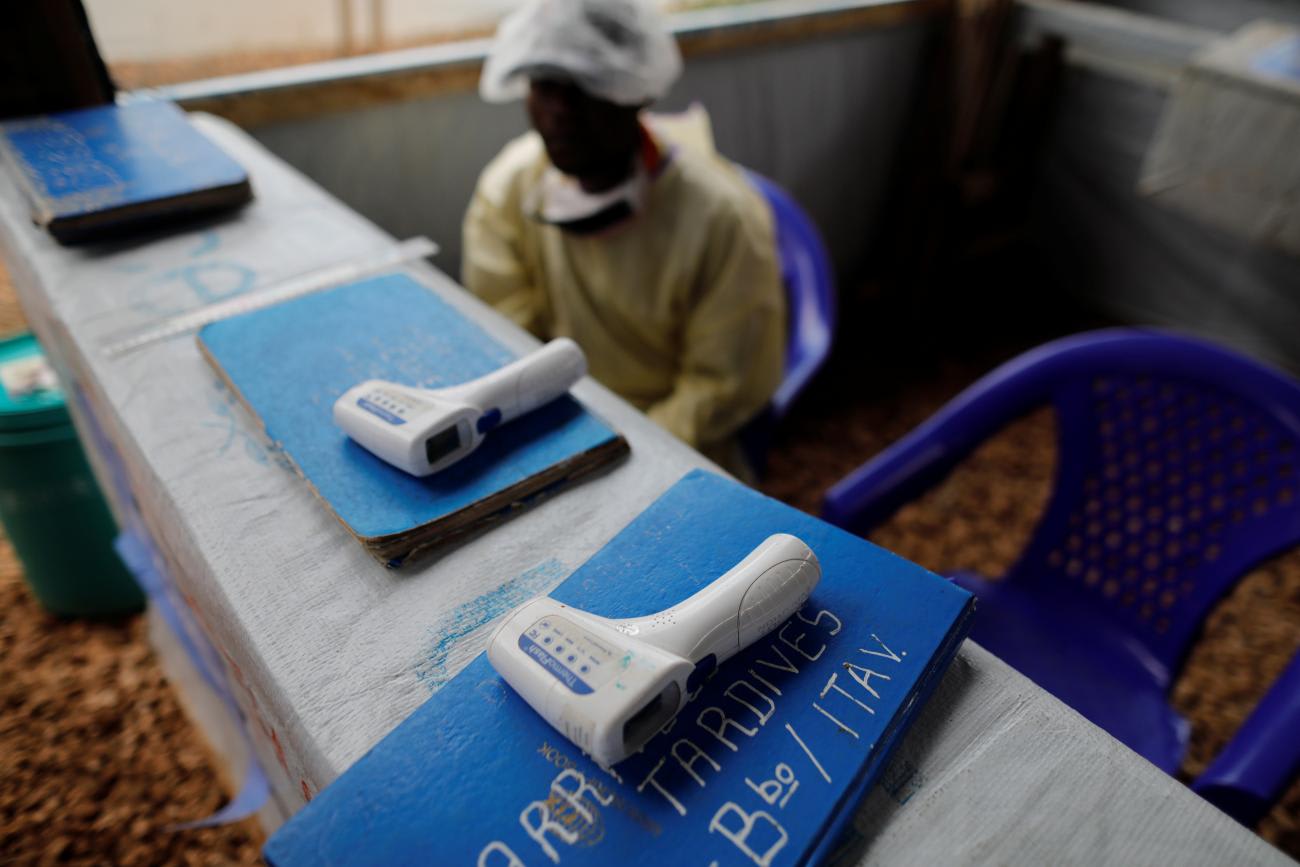
Building on this momentum, regional organizations are now well positioned to harmonize surveillance systems and serve as hubs for knowledge, information, and data sharing. The European Center for Disease Prevention and Control, for example, in 2021 successfully integrated several surveillance platforms to launch EpiPulse, an online portal for epidemiological intelligence, threat detection, and outbreak response.
Regional organizations can also deploy resources quickly in times of crisis. For example, the Economic Community of West African States established agreements and protocols to deploy specialized human resources [PDF] across member states during emergencies, and ASEAN demonstrated the power of collective action in its 2024 mpox outbreak response.
Last, regional organizations are essential to establishing regional research and development hubs across low- or middle-income countries. The current production and distribution system is inherently inequitable because manufacturers often prioritize high-income countries, delaying or limiting access to essential technologies for the rest of the world and leaving vulnerable populations exposed during health emergencies.
Recommended Actions for Regional Organizations
To realize their potential, regional organizations should continue to demonstrate their value not only within their regions but also in broader global health governance frameworks. Their ability to compel global systems to act—such as when the Africa CDC declared the mpox outbreak a Public Health Emergency of Continental Security in August 2024, followed by the WHO's own emergency declaration—shows the growing influence regional bodies can wield. However, sustaining this influence will require more than decisive action.
Regional organizations must position themselves as convener and coordinator of equitable, inclusive partnerships to ensure sustained collaboration in crises, mobilize support, and drive collective action.
In addition, regional cooperation can be enhanced by identity-building efforts. Initiatives such as the Common African Position or the EU's Team Europe approach to the COVID-19 pandemic highlight how unity can amplify regional influence. Fostering more cohesive multilateral relations could also help buffer regional blocs from larger geopolitical tensions. The U.S. withdrawal from the WHO and Europe's redirection of development aid only underscore the urgency for regional blocs to reinforce their own health governance frameworks. The establishment of the Africa Epidemic Fund and proposal of a continental health research and development governance framework show how this recalibration toward regional self-reliance is already taking shape.
Good governance principles—including transparency and accountability—should be embedded in the decision-making processes to demonstrate legitimacy and credibility. During Africa CDC's leadership transition in 2023, Rwanda President Paul Kagame emphasized the need for a transparent and credible election process, recognizing that the institution's growing role demanded equally strong standards of governance. Efforts to uphold integrity not only strengthen internal cohesion but also bolster the trust and confidence of member states and external partners alike.
These recommendations might not mitigate the potential barriers to regional cooperation. Geopolitical complexities as well as ideological and political divisions at both global and regional levels pose significant challenges, creating tensions within regional blocs. During the COVID-19 pandemic, ASEAN countries initially struggled to share detailed health data and accept external technical assistance given concerns over national sovereignty, which slowed regional coordination. In MERCOSUR, political and ideological divides between member states—especially Argentina, Brazil, and Uruguay—were exposed during the pandemic. Disagreements over vaccine procurement and border control policies further strained the bloc, demonstrating how political differences between left-leaning and right-leaning governments can undermine regional solidarity. Overcoming these divisions is essential.
By strategically cultivating partnerships, embedding transparency and accountability, and securing stable investment in health systems, regional organizations can solidify their role as indispensable pillars of global health security.
